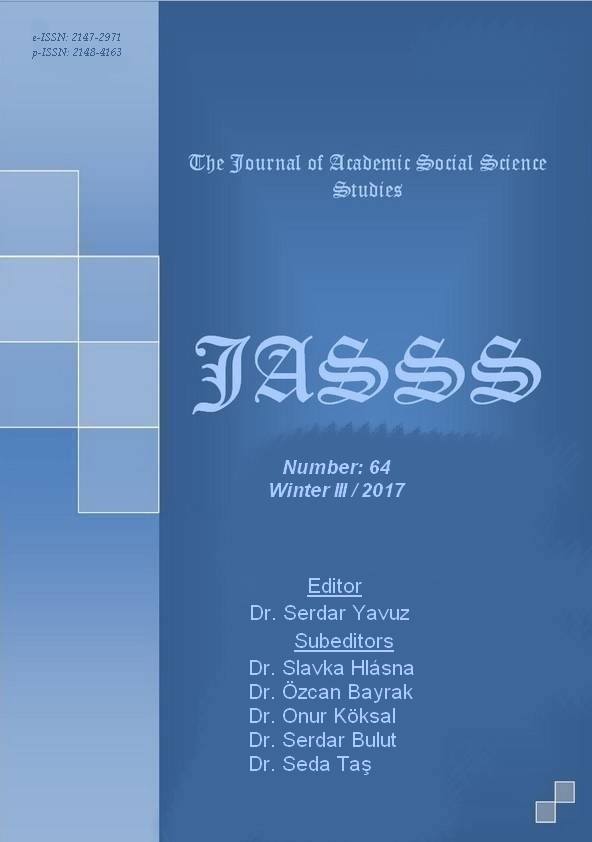FEN BİLGİSİ ÖĞRETMEN ADAYLARININ YENİLENEBİLİR ENERJİ KONUSUNDAKİ TEKNOLOJİK PEDAGOJİK FARKLI BAĞLAM BİLGİSİ
Author :
Abstract
Bu çalışmanın amacı, Fen Bilgisi (FB) öğretmen adaylarının Yenilenebilir Enerji Konusundaki (YEK)- Teknolojik Pedagojik Farklı Bağlam Bilgisi (TPFBB)’ni araştırmaktır. Bu çalışmada YEK-TPFBB dönüşümcü model’e göre; alan, teknoloji, pedagoji ve farklı bağlam bilgisinin birlikte etkileşiminden meydana gelen yeni bir alan olarak oluşturulmuştur. Çalışmada bağlam bilgisi; (1)Makro, (2)Mezo, (3)Sub-Mezo, (4)Mikro ve (5)Sub-Mikro bağlam olmak üzere farklı faktörleri içeren beş kategoride tanımlanmaktadır. Tarama metodunun kullanıldığı çalışmaya, 2014-2015 eğitim-öğretim yılı, Fen Bilgisi öğretmenliği programında (1.2.3 ve 4.sınıfta) öğrenim gören toplam 36 fen bilgisi öğretmen adayı katılmıştır. Çalışmada farklı sınıf seviyelerindeki FB öğretmen adaylarının TPFBB’sini belirlemek için; farklı bağlamlar tasvirine yönelik bireysel yarı yapılandırılmış mülakatlar kullanılmıştır. Elde edilen verilerin analizi için, içerik analiz tekniği kullanılmıştır. Çalışmadan elde edilen bulgular, farklı sınıf seviyelerindeki öğretmen adaylarının birbirine yakın seviyede olduğunu ve yenilenebilir enerji konusuna ilişkin teknolojinin entegre edildiği farklı bağlam bilgisinde yetersiz düzeyde olduklarını göstermiştir. Farklı sınıf seviyelerindeki fen bilgisi öğretmen adaylarının, yenilenebilir enerji konusunun öğretim sürecinde çoğunlukla Makro ve Mezo bağlamı görmezden geldikleri daha çok Sub-Mezo, Mikro ve Sub-Mikro bağlamda kısmen bilimsel düzeyde oldukları belirlenmiştir. Öğretmen adaylarının YEK’in öğretiminde teknolojinin entegre edildiği farklı bağlamlara ilişkin değerlendirme bilgisinde bağlama ilişkin faktörleri görmezden gelerek bilimsel olmayan açıklamalarda bulundukları belirlenmiştir. Çalışmadan elde edilen sonuçlar, öğretmen yetiştirme sistemine yönelik tartışılmıştır.
Keywords
Abstract
In this study utilizing the case study survey method, pre-service teachers’ Technological Pedagogical Different Contextual Knowledge (TPDCK) involving the topic of Renewable Energy Sources (RES) were investigated. RES-TPDCK designed according to transforming model was conceptualized as an integration of the subject matter, pedagogical, technological and different contextual knowledge in the study. Contextual knowledge is consist of five different categories; (1)Macro, (2)Mezo, (3)Sub-Mezo, (4)Micro ve (5)Sub-Micro context. 36 Pre-service Science Teachers, which were selected according to the techniques of nonprobability sampling, in their first, second, third and fourth grade in the Department of Science Education Program during 2014-2015 academic year participated in the study. Different contexts based semi-structured individual interviews for the PSTs’ TPDCK was used as data collection tools in this study. The content analysis method was used for the data analysis. Findings obtained from the data analysis showed that pre-service teachers’ TPDCK levels were approximately same and their RES-TPDCK was inadequate. It was also found that they had partial understandings on sub-mezo, micro and sub-micro contexts, while the most of them neglected the macro and mezo contexts in the teaching process of pre-service teachers. It was understood that pre-service science teachers had non-scientific views about the knowledge of technology-supported assessment, ignoring contextual factors in the teaching process of RES. The conclusions of this study were discussed on teacher training system.





